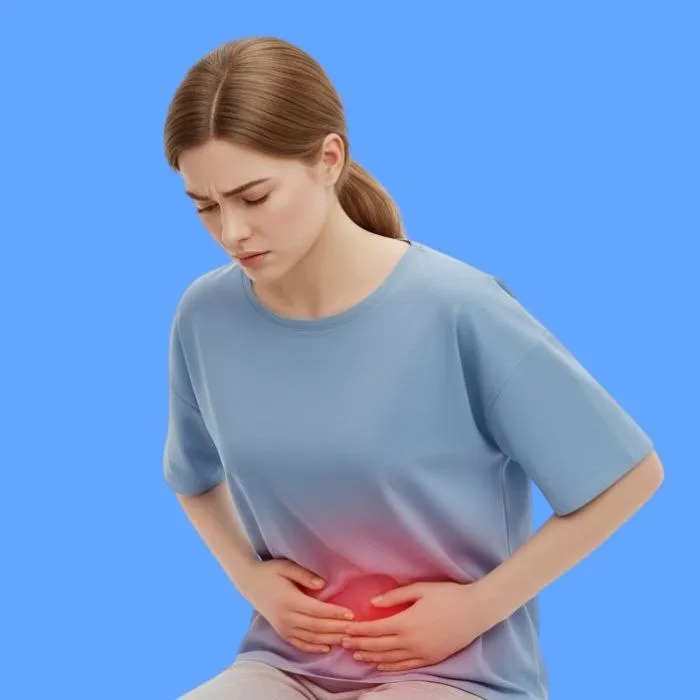What is pelvic inflammatory disease (PID)?
Pelvic inflammatory disease (PID) is a common gynecological condition affecting the upper reproductive system in women.
It usually occurs as a result of a bacterial infection spreading from the vagina to the uterus, fallopian tubes, or ovaries.
This condition can affect a woman's fertility and reproductive health if not treated promptly.
What are the causes of PID?
There are several common causes of PID, including:
- Sexually transmitted infections such as gonorrhea and chlamydia.
- Poor hygiene in the genital area.
- Inserting an IUD without adequate sterilization.
- Abortion or childbirth without proper medical care.
- Bacterial spread following gynecological surgeries.
What are the common symptoms of PID?
The symptoms of PID appear gradually and may vary in severity from one woman to another. They may include:
- Lower abdominal or pelvic pain.
- High temperature or fever.
- Abnormal vaginal discharge with a strong odor.
- Pain during intercourse or urination.
Menstrual irregularities or irregular bleeding When should you see a doctor?
It is recommended to see a doctor in the following cases to avoid complications:
- Severe, persistent pain in the lower abdomen.
- Abnormal or foul-smelling vaginal discharge.
- Fever accompanied by fatigue.
- Pain during intercourse or urination.
- Suspected sexually transmitted infections.
What are the methods for diagnosing pelvic inflammatory disease (PID)?
PID is diagnosed using a series of thorough medical tests, including:
- A clinical pelvic examination to detect pain or swelling.
- Analysis of samples of vaginal discharge to identify the type of bacteria.
- An ultrasound to evaluate the uterus and ovaries.
- A blood test to check for inflammation or infection.
- In some cases, a laparoscopy is performed to confirm the diagnosis.
What are the methods for treating pelvic inflammatory disease (PID)?
There are several effective methods for treating PID, depending on its severity, including:
- Taking antibiotics to eliminate the infection.
- Getting complete rest and drinking plenty of fluids.
- Avoiding sexual intercourse during treatment.
- Treating the partner if a sexually transmitted infection is confirmed.
- Surgical intervention is required in severe cases or if an abscess is present.
Is pelvic inflammatory disease (PID) curable?

Yes, it is completely curable with early diagnosis and adherence to prescribed treatment.
However, delaying treatment may lead to damage to the fallopian tubes or infertility.
Therefore, regular medical follow-up and not ignoring symptoms are recommended.
What are the tips for preventing PID?
There are a number of tips that can help prevent PID, including:
- Maintaining daily personal hygiene.
- Avoiding unprotected or multiple sexual partners.
- Regularly visiting your doctor for periodic checkups.
- Using a condom during intercourse to reduce infection.
- Avoiding insertion of vaginal douches or pessaries without consulting a doctor.
What are the potential complications of PID?
Serious complications may occur if treatment is neglected or diagnosis is delayed, such as:
- Infertility due to damage to the fallopian tubes.
- Ectopic pregnancy.
- Formation of an abscess in the ovaries or fallopian tubes.
- Chronic pelvic pain that lasts for long periods.
- Menstrual irregularities.
Frequently asked questions about pelvic inflammatory disease (PID)
Is PID contagious?
Yes, it can be transmitted through sexually transmitted infections (STIs).
Does PID affect pregnancy?
It may lead to difficulty conceiving if it damages the fallopian tubes.
Can PID be treated with herbs?
No, medical treatment with antibiotics should be used only.
Does PID affect sexual intercourse?
Yes, it may cause pain during intercourse until it is fully treated.
Article Summary
PID is an easily preventable disease with proper hygiene and health awareness.
Early treatment protects against complications and preserves fertility.
It is always recommended not to ignore any pain or abnormal discharge and to consult a doctor immediately.